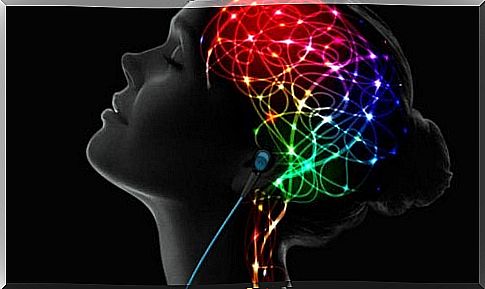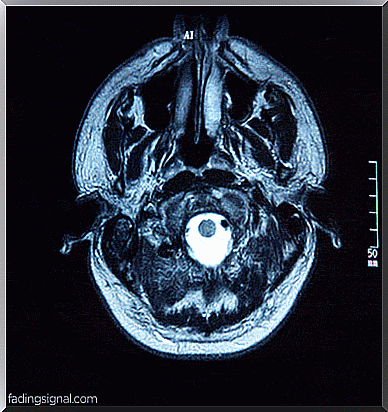3 Ways To Balance Brain Chemistry And Face Depression

Brain chemistry exposes us to certain moods. It is a fascinating but at the same time complex process where any imbalance or change in mediators can make us experience all kinds of emotions ranging from great motivation to the worst grief and radiant joy. So it’s important to understand these basics so you can face depression. In this article, we present three ways to balance brain chemistry.
These biochemical changes depend on many different factors. For example, there is endogenous depression, where low serotonin levels cause us feelings of helplessness, anhedonia, and permanent depression.
Exogenous depression, on the other hand, depends on dimensions that are not only related to the things around us, but also to the way we deal with the things and adversities we face on a daily basis, whether they are small or big.
Depression is also known to be associated with certain amino acids and a combination of certain neurotransmitters such as serotonin, noradrenaline, and dopamine.
Brain chemistry determines our mental state, and while we know that in many cases the only option is to resort to drugs, today we want to take this opportunity to talk about some complementary strategies.
There are natural ways to regulate many of these brain neurotransmitters. We tell you how you can balance your brain chemistry with natural means.
3 ways to balance brain chemistry
1. Dopamine deficiency and depression

Low levels of dopamine can cause a number of very clear symptoms: exhaustion, apathy, mood swings, lack of interest in the things around, and depression. Thus, facing depression can be difficult.
Dopamine is one of the most important neurotransmitters in the brain: it acts as a mediator for neuronal messages.
In addition, it is known that brain neurotransmitters play an essential role in generating our movements, motor skills, and energy (or motivation) to participate in the things around us.
How can dopamine levels be raised naturally?
- There is one essential amino acid that increases the amount of dopamine. It is known as L-phenylalanine.
- Our bodies are not able to produce L-phenylalanine ourselves, which is why we need to get it from food.
- Food-derived L-phenylalanine is then converted to tyrosine and at the same time induces dopamine production.
This amino acid is obtained from the following foods:
- Meat
- Dairy products
- Nuts such as almonds and walnuts
- Seeds (sesame, sunflower, pumpkin)
- Banana
- Beetroot
- Chocolate
- Green tea
- Blueberry juice
- Nonimehu
Exercises such as meditation or moderate exercise can also help balance the chemical levels in the brain.
2. Serotonin, a happiness hormone

Many antidepressants work like this: they cause certain inhibitors to stop the production of serotonin.
- Low serotonin levels can cause stress, depression, negative thoughts, and despair.
- For this reason, some drugs promote adequate production of this neurotransmitter.
- However, it is important to know that its production can also be promoted naturally.
How to raise serotonin levels
- Improve your diet by eating more bananas, dark chocolate, avocados, chicken, watermelon, blueberries, milk, cooking bananas… (the same foods that are also used to raise dopamine levels).
- Try a new hobby or something new: sign up for a painting course, dance class, yoga, etc.
- Listen to music: the positive emotions it evokes help with the balance of brain chemicals.
- Go out and meet people.
3. Sleep adequately as it balances brain chemistry

Poor sleep, several sleepless nights, and difficulty falling asleep have many detrimental consequences. One of them is a decrease in serotonin levels, which is known to cause exhaustion, increased sensitivity, and a risk of depression.
Good sleep is healthy and one way to balance brain chemistry. It’s a simple thing that regulates the neurotransmitters in the brain and helps us stay mentally stronger, more positive, and tougher.
Tips for a better night’s sleep to promote brain health
- Always follow the same schedule: eat lunch, enjoy dinner and go to bed at the same time each day.
- Two hours before going to bed reduce exposure to electronic devices, that is, turn off the computer, turn off the phone, do not use the tablet…
- Exercise in the morning or afternoon, never just before bed.
- Always follow the same routines when you go to bed: a hot shower, a cup of warm milk with honey, a book and relaxing in bed.
- Try to keep the bedroom temperature normal. Excessive heat, just like strong odors, can affect sleep.
Finally, the regulation and balancing of brain chemicals to treat depression does not depend solely on drugs. If we want to get out of this dark tunnel, we need more strategies, more psychological aids, and better lifestyles, just as we suggested in this article.









